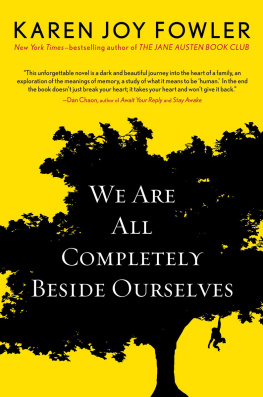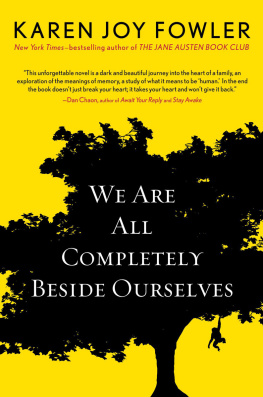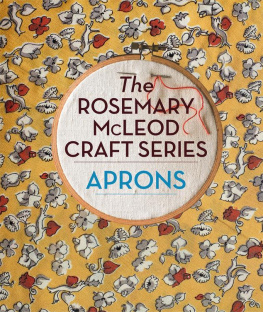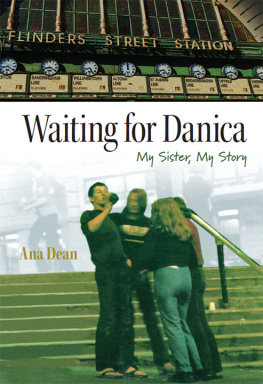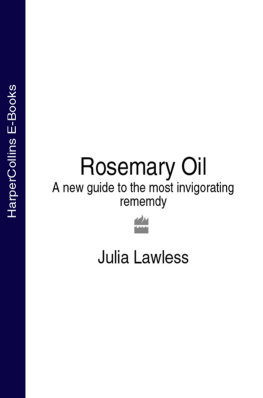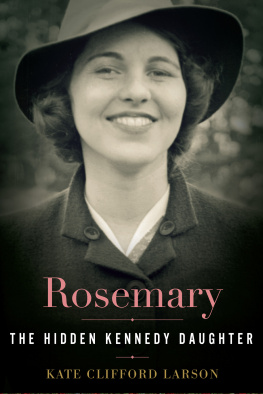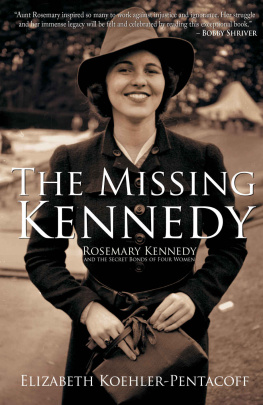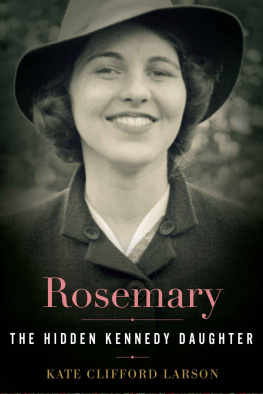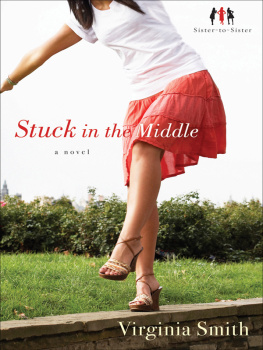ALSO BY
Karen Joy Fowler

NOVELS
Wits End
The Jane Austen Book Club
Sister Noon
The Sweetheart Season
Sarah Canary
STORIES
What I Didnt See
Black Glass
Artificial Things
A MARIAN WOOD BOOK
Published by G. P. Putnams Sons
Publishers Since 1838
Published by the Penguin Group
Penguin Group (USA) Inc., 375 Hudson Street,
New York, New York 10014, USA
USA Canada UK Ireland Australia New Zealand India South Africa China
Penguin Books Ltd., Registered Offices:
80 Strand, London WC2R 0RL, England
For more information about the Penguin Group visit penguin.com
Copyright 2013 by Karen Joy Fowler
All rights reserved. No part of this book may be reproduced, scanned, or distributed in any printed or electronic form without permission. Please do not participate in or encourage piracy of copyrighted materials in violation of the authors rights. Purchase only authorized editions.
Published simultaneously in Canada
The passages from Franz Kafkas A Report for an Academy are quoted from a translation prepared by Ian Johnston of Malaspina University-College (now Vancouver Island University), Nanaimo, British Columbia, Canada. The poem by Issa is quoted from a translation that appeared on Yoshi Mikamis Issas Haiku home page. Lyrics are quoted from The Hukilau Song by Jack Owens, and Love Potion No. 9 by Jerry Leiber and Mike Stoller.
Library of Congress Cataloging-in-Publication Data
Fowler, Karen Joy.
We are all completely beside ourselves / Karen Joy Fowler.
p. cm.
A Marian Wood book.
ISBN 978-1-101-59568-8
1. FamiliesFiction. 2. Self-realization in womenFiction. 3. Human-animal relationshipsFiction. 4. Life change eventsFiction. 5. Domestic fiction. 6. Psychological fiction. I. Title.
PS35556.O844W4 2013 2013000988
813'.54dc23
This is a work of fiction. Names, characters, places, and incidents either are the product of the authors imagination or are used fictitiously, and any resemblance to actual persons, living or dead, businesses, companies, events, or locales is entirely coincidental.

IN MEMORY OF
the wonderful Wendy Weil,
champion of books, animals,
and, in both categories, me

... Your experience as apes, gentlemento the extent that you have something of that sort behind youcannot be more distant from you than mine is from me. But it tickles at the heels of everyone who walks here on earth, the small chimpanzee as well as the great Achilles.
F RANZ K AFKA, A Report for an Academy
Contents
Prologue
T HOSE WHO KNOW ME NOW will be surprised to learn that I was a great talker as a child. We have a home movie taken when I was two years old, the old-fashioned kind with no sound track, and by now the colors have bled outa white sky, my red sneakers a ghostly pinkbut you can still see how much I used to talk.
Im doing a bit of landscaping, picking up one stone at a time from our gravel driveway, carrying it to a large tin washtub, dropping it in, and going back for the next. Im working hard, but showily. I widen my eyes like a silent film star. I hold up a clear piece of quartz to be admired, put it in my mouth, stuff it into one cheek.
My mother appears and removes it. She steps back then, out of the frame, but Im speaking emphatically nowyou can see this in my gesturesand she returns, drops the stone into the tub. The whole thing lasts about five minutes and I never stop talking.
A few years later, Mom read us that old fairy tale in which one sister (the older) speaks in toads and snakes and the other (the younger) in flowers and jewels, and this is the image it conjured for me, this scene from this movie, where my mother puts her hand into my mouth and pulls out a diamond.
I was towheaded back then, prettier as a child than Ive turned out, and dolled up for the camera. My flyaway bangs are pasted down with water and held on one side by a rhinestone barrette shaped like a bow. Whenever I turn my head, the barrette blinks in the sunlight. My little hand sweeps over my tub of rocks. All this, I could be saying, all this will be yours someday.
Or something else entirely. The point of the movie isnt the words themselves. What my parents valued was their extravagant abundance, their inexhaustible flow.
Still, there were occasions on which I had to be stopped. When you think of two things to say, pick your favorite and only say that, my mother suggested once, as a tip to polite social behavior, and the rule was later modified to one in three. My father would come to my bedroom door each night to wish me happy dreams and I would speak without taking a breath, trying desperately to keep him in my room with only my voice. I would see his hand on the doorknob, the door beginning to swing shut. I have something to say! Id tell him, and the door would stop midway.
Start in the middle then, hed answer, a shadow with the hall light behind him, and tired in the evenings the way grown-ups are. The light would reflect in my bedroom window like a star you could wish on.
Skip the beginning. Start in the middle.
Part One

The storm which blew me out of my past eased off.
F RANZ K AFKA, A Report for an Academy
One
S O THE MIDDLE of my story comes in the winter of 1996. By then, wed long since dwindled to the family that old home movie foreshadowedme, my mother, and, unseen but evident behind the camera, my father. In 1996, ten years had passed since Id last seen my brother, seventeen since my sister disappeared. The middle of my story is all about their absence, though if I hadnt told you that, you might not have known. By 1996, whole days went by in which I hardly thought of either one.
1996. Leap year. Year of the Fire Rat. President Clinton had just been reelected; this would all end in tears. Kabul had fallen to the Taliban. The Siege of Sarajevo had ended. Charles had recently divorced Diana.
Hale-Bopp came swinging into our sky. Claims of a Saturn-like object in the comets wake first surfaced that November. Dolly, the cloned sheep, and Deep Blue, the chess-playing computer program, were superstars. There was evidence of life on Mars. The Saturn-like object in Hale-Bopps tail was maybe an alien spaceship. In May of 97, thirty-nine people would kill themselves as a prerequisite to climbing aboard.
Against this backdrop, how ordinary I look. In 1996, I was twenty-two years old, meandering through my fifth year at the University of California, Davis, and still maybe only a junior or maybe a senior, but so thoroughly uninterested in the niceties of units or requirements or degrees that I wouldnt be graduating anytime soon. My education, my father liked to point out, was wider than it was deep. He said this often.

